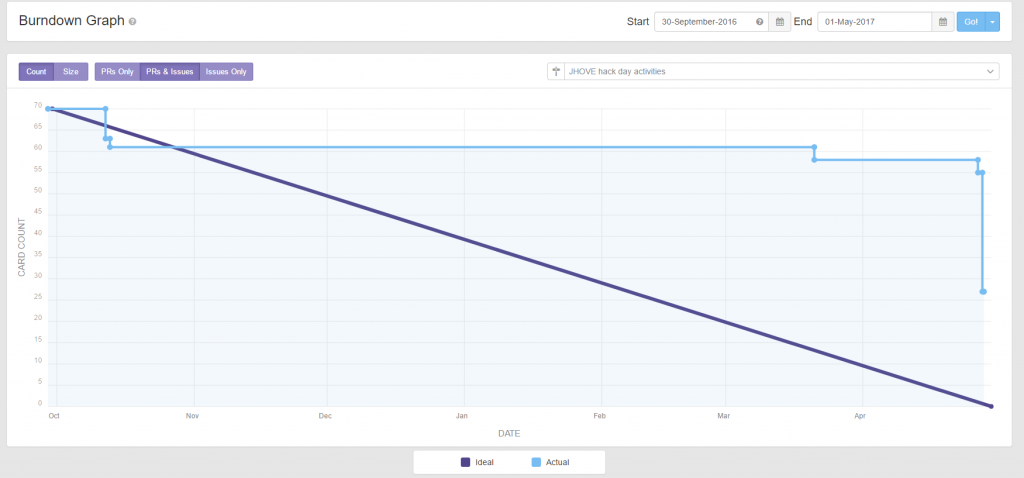The second JHOVE online hack day took place on 27 April. Once again, we were delighted to be joined by volunteers from around the world to help improve both the software and supporting documentation.
During the hack day, participants:
- continued to add explanations to the error messages spreadsheet;
- reviewed and extended the documentation;
- fixed a number of minor issues and improved the code base; and
- worked on adding and creating sample files that demonstrate JHOVE validation problems.
While individual tasks can appear quite minor in isolation they contribute to some long term goals for JHOVE. One aim is to assign unambiguous IDs to all JHOVE validation error messages. This will facilitate supporting users with validation issues and providing translations of validation messages. It also makes it easier to document validation messages in a community wiki alongside example files and an explanation of its impact. That is what a validation error means in terms of a preservation risk and what steps can be taken to address or mitigate the issue/s.
Another goal is to improve JHOVE documentation, particularly to make life easier for new users. Volunteers reviewed the draft JHOVE for beginners guide and expanded it to include unix installation instructions, a command line guide and JHOVE configuration files. Some work is required to both finish the draft, and to agree a structure for the guide before officially publishing it on the JHOVE website.
In order to track our progress we set up a milestone on GitHub, (with a kanban waffle board view) to outline a range of both technical and non-technical tasks to work on. There were five check-in calls on Hangouts, and we introduced a JHOVE slack channel to keep in touch with participants in between calls.
Together we tackled a record number of issues and pull requests as shown in the graph below. The dip in October shows activity from the first hack day, the dip in March was related to the 1.16 release, and the final drop shows the spring hack day activity.

The full list of closed issues for the hack day milestone can be seen here on GitHub: https://github.com/openpreserve/jhove/milestone/4?closed=1, while the remaining open issues are listed here: https://github.com/openpreserve/jhove/milestone/4. Among the open ones there are many that are nearly complete. We’ll be working to close these over a couple of days between now and the end of May. Any left over by then will be reviewed as we begin to create a new milestone for the next JHOVE hack day.
As this was only our second online hack day, we asked volunteers for feedback. The aspects they liked best were collaborating with others around a shared goal, the variety of tasks to choose from, the opportunity to learn new things and the quick response rate for help and to answer questions. Things we can improve included better communications between participants to help volunteers find out what other people were working on, and more information about the tasks.
This reflects our view that although we had more volunteers and achieved more work, the day was a little less social than the first hack day. Fewer people attended the check in calls, but people used the slack channel to communicate instead. Some of this was in one-to-one chat, rather than public channels. Next time we will set up dedicated slack channels for related tasks to help people work together more easily and make it easier to find out what others are working on. We will also add more detail to the tasks, or break them down into smaller tasks where appropriate.
Thank you so much to everyone who volunteered on the day, or supported the organisation or promotion of the event. Once again it was fantastic to see such amazing collaboration in the digital preservation community. You are awesome!


